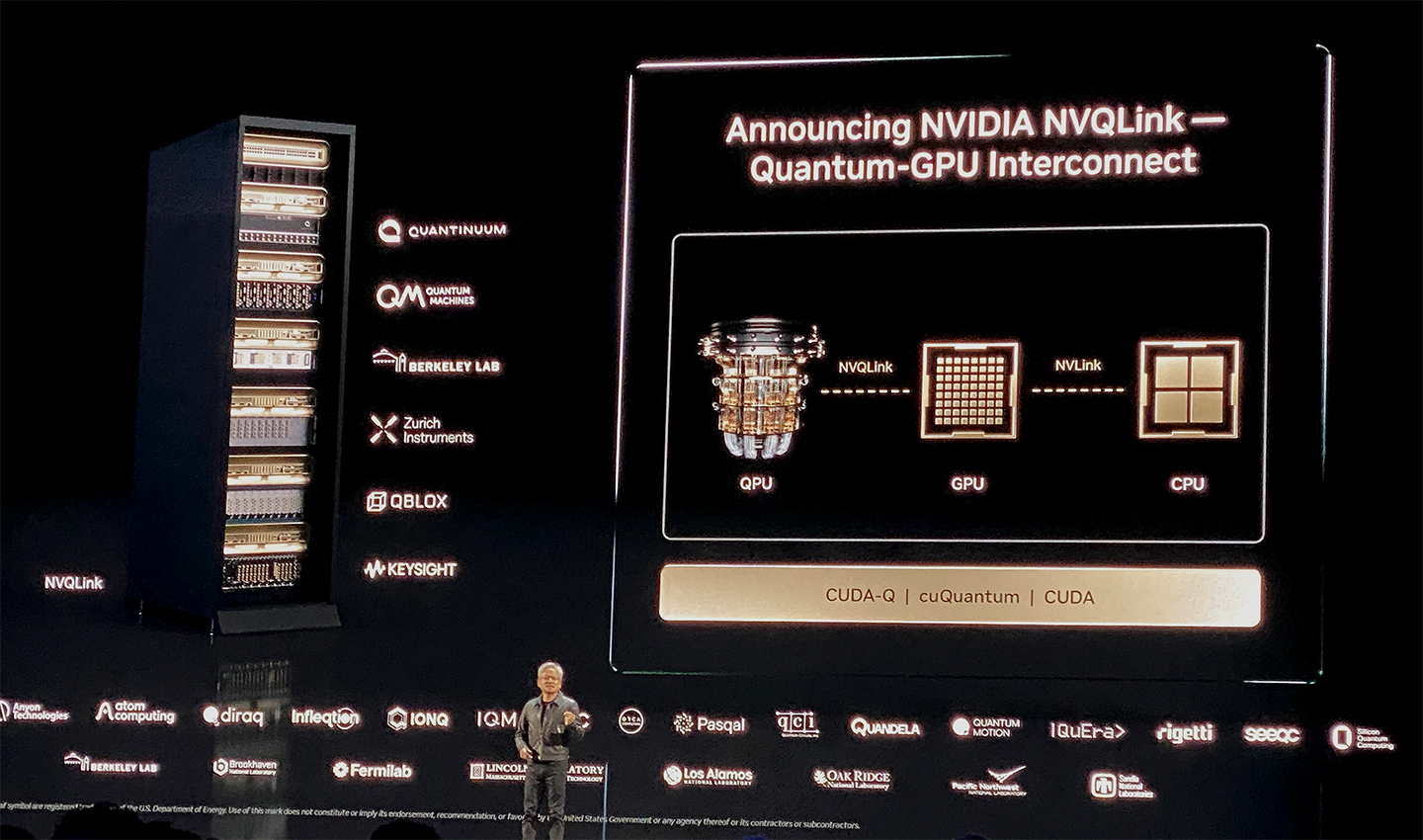Quantum computers have the potential to revolutionize fields like energy and materials science. But their basic building blocks-qubits-are currently extremely fragile and can lose their information from even the slightest disturbances like heat, stray electromagnetic signals, or vibrations. That's why, in the near term, real breakthroughs in quantum computing will depend on correcting errors, requiring that quantum devices work in tandem with today's most powerful traditional computing resources, such as high-performance computers (HPCs).
This NVQLink partnership was announced on Tuesday, October 28 at the NVIDIA GPU Technology Conference in Washington, D.C.
The collaboration will leverage Berkeley Lab's Quantum bit Controller (QubiC) to run hybrid applications on Quantum Processing Units (QPUs), Graphics Processing Units (GPUs), and Central Processing Units (CPUs) as needed. When QPUs, GPUs, CPUs, and their control systems are tightly connected and can exchange data quickly and in large amounts, developers can tackle the heavy computational demands of quantum error correction-a process that detects and fixes mistakes in quantum calculations by spreading information across many qubits, which is essential for turning unreliable physical qubits into robust "logical qubits," making quantum computers stable enough to run advanced applications.

"QubiC is one of the first open-source platforms to tightly integrate quantum hardware control, hybrid quantum-classical workflows, and high-performance computing in a modular, extensible way," said Gang Huang, a staff scientist in Berkeley Lab's ATAP Division and principal investigator of the QubiC project. "By focusing on open access and seamless orchestration of QPUs, GPUs, and CPUs within supercomputing environments, our NVQlink partnership is setting a new standard for collaborative, scalable, and accessible quantum research."
"By incorporating QubiC into NVQlink, we will provide researchers with open access to the tools and infrastructure needed for rapid innovation," said Yilun Xu, a research scientist in Berkeley Lab's ATAP Division who is a key contributor to the development of QubiC. "This quantum ecosystem-including integration with HPC-allows scientists to tackle critical challenges like error correction and hybrid algorithms at scale, helping the entire research community move faster toward reliable, real-world quantum computers."
QubiC is supported by the Advanced Quantum Testbed (AQT) and the Quantum Systems Accelerator (QSA), both hosted at Berkeley Lab and funded by the U.S. Department of Energy's Office of Science, Office of Advanced Scientific Computing Research. The QubiC team collaborated with researchers at UC Berkeley's Quantum Nanoelectronics Lab, directed by Irfan Siddiqi, who is also the chair of the UCB Physics Department. Siddiqi's lab and students served as expert users and provided valuable feedback, helping to shape QubiC's features to address the real-world requirements of advanced quantum platforms. AQT provides open access to quantum computing resources for the research community. QSA is one of five National Quantum Information Science Research Centers, focused on developing technologies to address longstanding challenges in quantum information science.
"AQT's unique full-stack integration-from the physical quantum processing unit all the way to algorithm research-creates an unparalleled environment for innovation," said Siddiqi, who is also a faculty scientist at Berkeley Lab and AQT director. "This comprehensive foundation is well matched to an advanced control system like QubiC, where the developer can seamlessly pivot to capitalize on emerging concepts in the field, including the contributions of our user community. We are now excited to integrate new technologies, such as NVQLink. By bridging every layer, from hardware to software, we will empower researchers to accelerate progress across the entire quantum computing ecosystem."
"Now, researchers can create truly adaptive HPC-supported quantum experiments-where data flows instantly from the QPU, through GPU-accelerated analysis with NVQLink, and back to the control system. This real-time feedback loop enables a new era of quantum discovery, where experiments learn and evolve on the fly, unlocking scientific insights that were previously out of reach," said Bert de Jong, QSA Director and Head of the Computational Sciences Department in Berkeley Lab's Applied Mathematics and Computational Research Division.






